Introduction to Diversity and Inclusion at Hurst College
In recent months, we have seen change of all types firstly in the fight against a global pandemic and secondly with the Black Lives Matter movement which has brought to the forefront issues surrounding inequality around the world.
Naturally, we have all been challenged to take a deeper look into how we live our own lives, perform our jobs and even analyse our subconscious thoughts and feelings. Hurst, as an independent school of excellence, is not exempt from this challenge and has therefore decided to tackle this head on with the expansion of my role as a Housemistress to become the new Director of Diversity and Inclusion. My hope is to work closely with a team of well-informed staff members along with passionate students to bring about positive changes so that we think more critically about diversity and inclusion.
Working together with both the pupil and staff platform, I hope to create opportunities for change within our academic and co-curricular programmes, ensuring that when our students leave Hurst they have a thorough awareness of issues surrounding race, gender, sexuality, ethnicity, disability, class, religion and therefore head out into the world with everything necessary to find their way.
W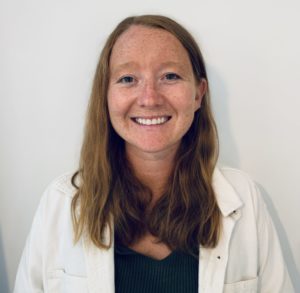 e started this journey in the Summer term through the creation of staff and pupil platforms along with holding an INSET outlining our goals for moving forward. In both cases, the support from members of staff and pupils has been overwhelming and brilliant which will help to drive this movement forward with great positivity and gravitas. I feel incredibly excited and optimistic that Hurst can and will make huge strides towards a more diverse and inclusive environment for all members of its community – staff and pupils alike.
e started this journey in the Summer term through the creation of staff and pupil platforms along with holding an INSET outlining our goals for moving forward. In both cases, the support from members of staff and pupils has been overwhelming and brilliant which will help to drive this movement forward with great positivity and gravitas. I feel incredibly excited and optimistic that Hurst can and will make huge strides towards a more diverse and inclusive environment for all members of its community – staff and pupils alike.
Jami Edwards-Clarke, Director of Diversity and Inclusion
It is important for us to remember that Hurst College is an independent school. It sounds silly to say, but this statement leads us to consider what it is that a school is for. We can probably agree that the role of school is to educate our young people – but what does the word ‘educate’ really mean? Is it to enable young people access to the best academic outcomes, achieving the top grades at GCSE and A-level? Is it to enable young people access to the job market, ensuring that they leave school able to achieve wealth and prosperity? Or is education about more than just grades and careers? Is education about exposing young people to what it truly means to be human, in all its messiness and uncomfortable truths, in the hope that the next generation can make the world a better, more equal place?
Over recent years, the academic curriculum at Hurst has been fine-tuned to ensure young people are able to achieve their full potential. This has been supplemented by co-curricular and pastoral programmes that ensure the whole child is nourished with an extremely rich diet. This is to be celebrated. Yet as academic programmes have been fine-tuned to meet the needs of the new exam specifications, what social, cultural and historical learning has been lost as a result of the formal learning programmes followed by each department?
In our end of year INSET session, Heads of Department were invited to reflect upon the diversity contained within their curriculum areas with their staff. The reflection was structured through a series of questions that placed the teachers into the role of the student, considering the view of the world they were left with at the end of their courses. You can see the questions below:
1. You are a young person at the end of your learning journey within the department. What view of the world have you developed through our learning programmes?
2. You are a young person who identifies as belonging to a minority group. What view of yourself have you developed through our learning programmes?
3. What culturally diverse learning opportunities are already overtly present within our curriculum?
4. What opportunities are currently being missed to engage with culturally diverse learning in our existing curriculum?
5. What changes could be made to our curriculum in order to make it more culturally diverse?
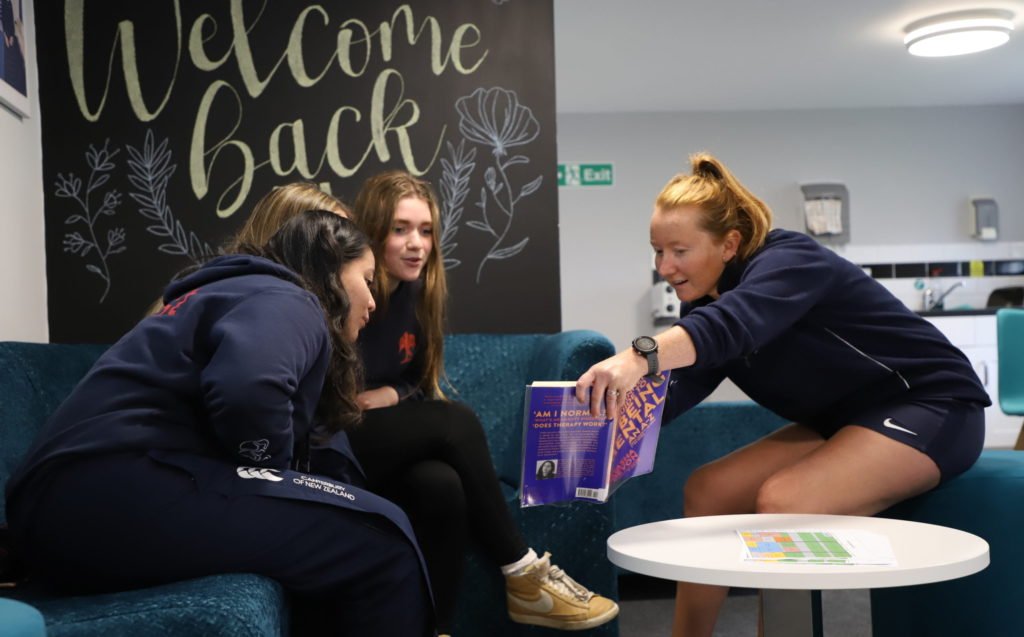
While there was much to celebrate in the Hurst curriculum, it was recognised by all that there was much still to do. While equal representation of gender was an area of real strength, with a concerted effort made in typically male-dominated subject areas such as Psychology, Physics and English to better represent women, more work needs to be done to strengthen the recognition of the contribution of BAME and LGBTQ+ groups.
However, many departments began to uncover some uncomfortable truths about the relationship between the learning experience within their curriculum areas and the content of the exam board specifications which they deliver.
A running theme throughout the reflection was that curriculum content determined by specification lacks diversity, particularly in studied set texts and persons of interest. This is extremely problematic for the world view our students are left with, which has become dominated by the achievements of the white, heterosexual male.
Many HoDs articulated this frustration, while also commenting on their desire to do better. In Physics, we have pledged to celebrate the contributions of more diverse Physicists. In Business and Economics, they have pledged to challenge the view that the marketplace, its workforce and consumers are there to be exploited. In the Sociology Department, the LGBTQ+ community in Brighton will continue to be celebrated for the pursuance of identity and rights issues. The Modern Foreign Languages Department have pledged to include more cultural case studies that expose our young people to issues within French and Spanish speaking countries beyond Europe.
An area of significant influence could well be sport and the art. Perhaps articulated most beautifully by a student of Dance:
“ I have learnt through the study of Dance that I do not have to identify myself with a socially constructed label in order for me to make sense to others for whom I do not represent the norm or for whom I represent a threat to their own sense of self. It is ok to simply be who I am ” Dance student
These curriculum areas create the cultural fabric of any school and therefore will be fundamental in providing our young people with a meaningful exposure to the reality of what it means to be human. From the field, to the stage or to the art studio, each recognises its importance in developing a greater sense of awareness within our community. Each also recognises that this will require them to take a greater level of risk within performance, challenging the conventions and structures that have been embedded into the very fabric of the college throughout the course of its history and questioning its output in creative and sporting endeavours. We cannot afford to simply continue to play it safe – and nor should we.
The most important change to make is with the exam boards themselves. Therefore, the most important pledge to make of all will be for HoDs to lobby exam boards to include greater diversity within specification content. Hurst has the chance to pave the way for independent schools to join forces to challenge exam boards and also the Department for Education to develop a broad and balanced curriculum that embraces and celebrates diversity as a core principle.
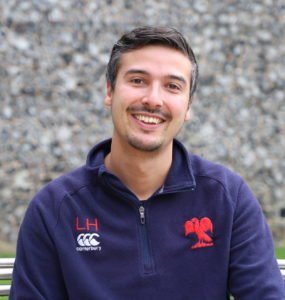 While we continue to uncover some uncomfortable truths in the independent sector, it is important that we take conscious steps to embed long-lasting, meaningful change that will enable our young people to be the generation that makes a better, more equal world for us all.
While we continue to uncover some uncomfortable truths in the independent sector, it is important that we take conscious steps to embed long-lasting, meaningful change that will enable our young people to be the generation that makes a better, more equal world for us all.
Liam Harris, Head of Drama
The voices of our Staff Platform
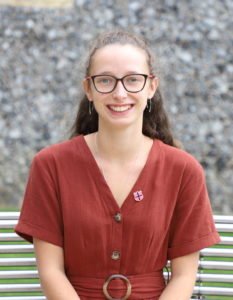 I believed myself to be an inclusive, liberal, accepting woman. I’d like to believe I still am, but I was, and continue to be, incredibly naive about how the world works, and the disadvantages too many people face. I was sat watching When They See Us (Netflix, true crime) and got halfway through the first episode before breaking down in tears. The reality was finally hitting me in waves, I’d sat for weeks watching the news, my anger building. The social media accounts I follow increased to include more education and understanding; the conversations with friends focused on clarifications and questions. This shouldn’t be a post about my white experiences, but merely a recognition that we all have a lot more to learn. I want to understand, I want to empathise, I want to change and support, empower and encourage. I want to do this without being a ‘white saviour’, so I also need to learn how. How to speak about race – which I think focuses on listening – so that’s why I’m part of this group. I feel proud to be part of this strong and united group of staff and students, and am eager to see how our ideas, discussions and momentum positively affect individuals, communities and lives.
I believed myself to be an inclusive, liberal, accepting woman. I’d like to believe I still am, but I was, and continue to be, incredibly naive about how the world works, and the disadvantages too many people face. I was sat watching When They See Us (Netflix, true crime) and got halfway through the first episode before breaking down in tears. The reality was finally hitting me in waves, I’d sat for weeks watching the news, my anger building. The social media accounts I follow increased to include more education and understanding; the conversations with friends focused on clarifications and questions. This shouldn’t be a post about my white experiences, but merely a recognition that we all have a lot more to learn. I want to understand, I want to empathise, I want to change and support, empower and encourage. I want to do this without being a ‘white saviour’, so I also need to learn how. How to speak about race – which I think focuses on listening – so that’s why I’m part of this group. I feel proud to be part of this strong and united group of staff and students, and am eager to see how our ideas, discussions and momentum positively affect individuals, communities and lives.
Phoebe Lewis, Psychology Teacher
The current state of the world demands that we do all that we can, as individuals and collectively, to strive for social justice and equality. I hope that the discussions and education delivered through this platform will broaden the perspective of staff and students alike and will result in real progress towards greater diversity at Hurst. Such progress will enrich and enliven the experience of everyone.
Hannah Linklater-Johnson, Head of Higher Education
I, like so many, have been affected by the BLM movement. For me the response represents more than an intellectual argument about equality and academic discussion about race issues. For me the news coverage and the videos I have watched evoke an emotional response. Initially these were all coloured by the sour taste of fear, fear stemming from the stirring up of memories that had been hidden away from public view. However, the bitter taste instilled by white supremist groups and thoughtless comments is being tempered by a gradually growing sense of hope. For me there was no option of not being a part of the Diversity and Inclusion group at Hurst. I needed to be a part of the change I wanted to see happening and this gave me the platform for my voice to be heard. This group will help Hurst move towards fully embracing a culture that is stronger and healthier, with values built around core beliefs of equality, parity and fairness. Together we are working on changing behaviours, developing new ways of thinking, planning and ensuring that all parts of policy creation or decision-making are scrutinised under this new light. To quote Maudette Uzoh, this platform exists to help Hurst ‘cultivate an environment where it’s impossible for racism of any sort to sprout or thrive’.
We are looking to develop our INSET training and our department meetings not to tick the box or create a moment to celebrate how ‘woke’ we are. Our aim is to educate ourselves, each other, our staff, our pupils, and our parents. To push forward positive change. A change we hope to see not only reflected in reducing bias, through training and awareness, but also in policy change so all processes are embedded with the expectation to always create a culture that embraces diversity and is founded on inclusivity. This means becoming a community in which any form of racism will not be overlooked, dismissed, belittled, or tolerated.
It is a sad and, perhaps, little-known truth, that victims of racism often stay silent. There is a fear of being judged, of being told once again ‘it’s only a joke’, of being told they are ‘overreacting’. There is always another way of being told that one ‘isn’t quite right’ for the job, position, role, without stating the reality of the more appalling truth. Coupled with the emotional response the victim is left knowing, logically, they are in the right, but feeling diminished, vulnerable, exposed, and frightened. It is therefore encouraging that the Diversity and Inclusion group began with members saying that this could not be tolerated, and that to allow one comment to pass unchecked, unchallenged, is to set a tone that suggests racism is acceptable. To support the victim, to stand with them as an ally is to give them the freedom of speech which has so long been denied and is empowering for the community as a whole.
On a personal level, it is this new dialogue I find most exciting. Sharing my experiences and my views, and seeing them being acted upon with sympathy, has been liberating and empowering. There is very little I will not talk about, I am known for being, perhaps, too forthright. But the terrible, overt and violent racism experienced when I was younger and the day-to-day casual racism I have learned to tolerate, is something I have hidden away. It is too painful and too damaging. I have friends and colleagues who have said to me, in the past, that they don’t know anyone affected by racism first-hand. Now, because of the Diversity and Inclusion group, this is first time I have felt able to say, ‘but you know me.’
Sarah Watson-Saunders, English Teacher
The voices of our Pupil Platform
The changes I hope to see at Hurst are mostly concerned with encouraging the education of pupils about race and diversity. Part of this is to do with the curriculum itself, for instance, there should be more focus in history about the atrocities of British colonisation. Not to make students ashamed of Britain, but to prevent a whitewashed pride inhibiting the desire to improve our country; and there should be more literature written by authors from ethnic minorities in English. Whilst teachers are understandably tied to the exam curriculum, I would argue that as an independent school, Hurst petitioning exam boards to diversify curriculums would have more impact than individual students doing so – this platform provides an ideal collaborative way to achieve this.
Outside of lessons, I would also hope for more encouragement for students to educate themselves on racism and how to be a better ally/activist. Many teachers currently have a ‘what I’m reading at the moment’ poster on their classroom doors. Why not expand that to include recommendations for podcasts, films and books which help educate about the experience of ethnic minorities?
Finally, education is meaningless without action. Whilst students cannot yet vote, we are able to email our MP and sign petitions. I hope to see the development of an ‘activist culture’. Students should be encouraged to email their local MP and be given the tools to do so in the most effective manner.
Saoirse O, Fifth Form
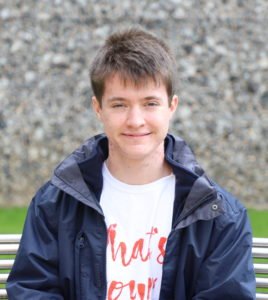 I joined the diversity and inclusion platform at Hurst because I believe every young person must understand issues regarding diversity. There are issues that are sometimes naively neglected because the slavery of the British Empire was abolished or because America has had an African American President. But pretending that this means equality is naive and just because society is more equal than before does not mean we should settle for anything less than complete equality. We, as the next generation of leaders, must understand this if we are ever to see the end of inherent racism. We should all actively educate each other to learn about these issues, which is another reason why I joined this platform.
I joined the diversity and inclusion platform at Hurst because I believe every young person must understand issues regarding diversity. There are issues that are sometimes naively neglected because the slavery of the British Empire was abolished or because America has had an African American President. But pretending that this means equality is naive and just because society is more equal than before does not mean we should settle for anything less than complete equality. We, as the next generation of leaders, must understand this if we are ever to see the end of inherent racism. We should all actively educate each other to learn about these issues, which is another reason why I joined this platform.
There’s no denying that the pupils who leave Hurst are statistically more likely to be successful because we’re a predominantly middle-class independent school. This makes the issue of racism something which should not be neglected because if it is then we would be doing a huge disservice to the future. I believe that the college has to ensure that diversity is a dialogue that is constantly engaged with.
I hope to see more in-class discussions that deviate from subject-based content in the national curriculum and incorporate diversity and inclusion – with teachers taking an active role in reflecting on how they can improve their lesson plans to ensure that these discussions take place; and that the content they are teaching is reflective of the equal society that we will hopefully see in the future.
It’s these changes – such as constantly educating on these issues and ensuring teachers are up-to-date with key issues – that I hope we can adopt as a college which will hopefully allow us, the pupils, to leave the college with an understanding of how an equal and inclusive society could look.
Aengus D, Lower Sixth
I joined the Diversity Platform at Hurst because I felt that, as a community, we have a long way to go in terms of challenging bigotry and making Hurst a safer and more accepting place for people in all minority groups. Given the extensive white privilege within Hurst, I think we tend to look past issues like racism because we simply don’t see it as a part of our lives. It’s on the news, social media, TV but not explicitly within our own lives. Due to this lack of experience, we stop educating our children, stop reading articles and watching shows because even though we are aware of racism, and give it a passing “it’s just so awful” when the topic arises, we don’t feel as though we have to fight against it because it has never happened to us.
For our community to begin to function in a way that is accepting and respectful of its students of colour, LGBTQ+ and female, we must begin to educate pupils on these issues and their past. The world is an unfair place and if our pupils go into it with no knowledge of how people should be treated, and the issues brought upon us by the past, then they will have a major shock – because the world isn’t like Hurst, you can’t just give someone a clearing or a HOY alert if they say something offensive. Often, I hear people referring to us as the ‘Hurst bubble’ which would be alright except for the fact that this bubble is causing harm by leaving hundreds of children uneducated about crucial topics. The bubble needs to be reassessed.
Change won’t be easy. Many people, from teachers to parents to pupils, may be prejudiced towards minority groups without being aware of it and for this change to occur we have to recognise that. We must see in ourselves, and other people, the beliefs we may hold that aren’t necessarily accepting and could be harmful to others. Instead of punishing this we should recognise it, educate, and work to shift some of those beliefs. For this change to happen we need to re-evaluate our syllabuses. The English syllabus, for example, has next to no literature written by people of colour, and is mostly written by men. Or our sex education department – why do we teach our Shell pupils about only heterosexual relations? Or our History department, we learn about many of these ‘great’ leaders, failing to include the part where they were slave owners! There is so much change to be made and although it may seem daunting at first, and will take time and constant effort, the outcome will be so worthwhile. A community which thrives because you know that every child who enters and departs will see a suitable, well-rounded, non-discriminatory education. This is the time for change and these children are the future. Let them make that change.”
Anna R, Shell
Lower Sixth Former, Poppy M, is a Photography student with a passion for social justice. She went along to the Brighton BLM protest and captured some powerful images.
Thank you all for taking the time to read this blog. I know that there are lots of positive changes coming Hurst’s way and I look forward to being part of it. The Diversity and Inclusion INSET video was created by the staff and pupil platform – please feel free to watch.
Diversity is about all of us, and about us having to figure out how to walk through this world together.
Jami Edwards-Clarke, Director of Diversity and Inclusion
Please follow the links below for further information about Hurstpierpoint College, an independent, co-educational, day and boarding school for pupils aged 4–18, located just to the north of the village of Hurstpierpoint, West Sussex.
Prep & Pre-Prep
Senior School
Sixth Form
Admissions
College Campus
Facilities
Hurst College’s inspection reports and reviews:
ISC Inspection reports
Good Schools Guide
Muddystilettos.co.uk
